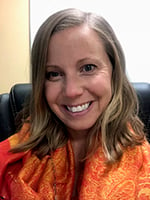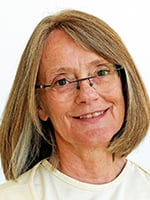Is the area of public health ethics different from research ethics?
The Center for Bioethics and Humanities at CU Anschutz and the Colorado School of Public Health have teamed up to promote education about public health ethics and history among members of the public health community. Carol Runyan, MPH, PhD, and Sara Brandspigel, MPH, spearheaded the project and produced a website with teaching materials, resources and the opportunity to “ask the ethicist” any burning question.
Ethical decisions are made every day in science and in practice. Most scientists are familiar with many different disciplines of ethics, including research and human subjects, but not necessarily public health ethics.

“Public health ethics has its own place in the world, separate from research ethics or medical ethics,” said Runyan, Professor of Epidemiology and Co-director of Program for Injury Prevention, Education and Research (PIPER) in the Colorado School of Public Health.
“The public health focus is about populations and issues of social justice. An example of a public health ethics question might be: how far can regulations go in demanding people get vaccinated? How about fluoridating the water?” said Runyan.
“If you read the news today, you can see countless cases where ethical errors have led to serious consequences,” said Brandspigel, Research Instructor of Epidemiology and assistant director for PIPER. “In the field of public health, ethical issues are often complex and lack easy answers. We want to ensure the public health leaders of the future are well-equipped to navigate ethical questions in their work and know where to turn when the answer isn’t simple.”
Weaving ethics into education
Runyan and Brandspigel asked professors in the Colorado School of Public Health what ethics meant to them and how they could be better equipped to teach the subject.
“This is where the idea of the website came from,” said Runyan. “We believed that creating a resource could give faculty the tools they need to weave ethics into their curriculum. This is a topic that is often not covered in public health curricula – but needs to be.”
Brandspigel added, “We created the site to ensure our faculty, staff and students have access to teaching materials and resources to facilitate learning around ethical issues, as well as historical information that gives important context for the role of public health professionals today.”
Ethics toolkit, a history lesson and a Q&A

The Public Health Ethics and History website went live in June 2019. It is comprised of two main components: the teaching materials and resources, and the “Ask the Ethicist” topics.
The teaching materials and resources include case studies, syllabi and other resources. There is also a section of historical information. This gives context to the origin of ethical issues and how they have evolved, said Runyan.
Inspired by the New York Times “The Ethicist”, Runyan thought adding an opportunity to “Ask the Ethicist” could add a personal flair to public health ethics.
“We wanted to create an open dialogue where students or faculty can ask questions and consider important issues in their work,” she said.
Through the website, Brandspigel is hopeful for greater integration of public health ethics into coursework and continued collaboration with the Center for Bioethics and Humanities.
“We hope to continue our efforts and elevate attention to public health ethics in the coming years,” she said. “With the invaluable help of the Center for Bioethics and Humanities, I know we can get there.”
You can learn more about public health ethics and history at the Public Health Ethics and History website.




